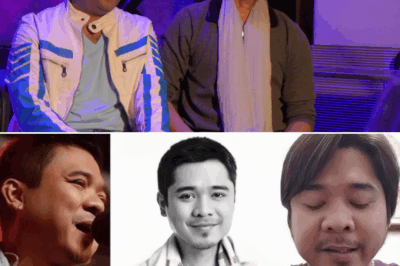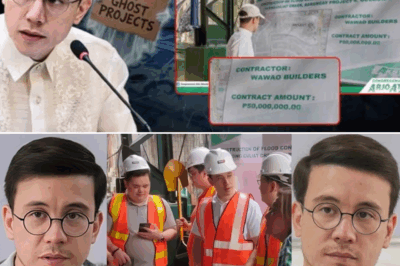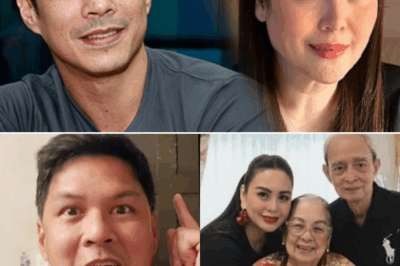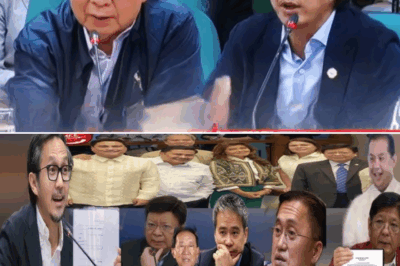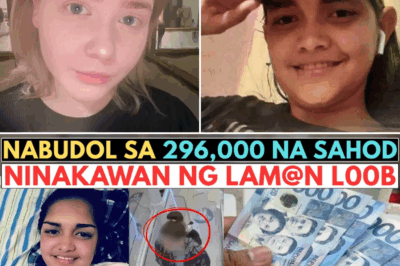A storm is brewing in the world of politics and media, and at the center of it is Pasig City Mayor Vico Sotto. Known for his firm stance on good governance and transparency, Vico is now challenging the ethical practices of media personalities who recently featured a controversial political candidate on their programs.

The issue exploded after interviews of Sarah Discaya—linked to major government contracts and now running for local office—surfaced on high-profile talk shows. Vico didn’t mince words. Without naming names, he questioned how much was paid to land those interview slots. His post immediately sparked public debate and an equally strong response from the other side.
Vico’s Strong Words
In a social media post, Vico called out what he described as the media’s “unethical cooperation” with people connected to questionable government projects. His rhetorical question, “Why would anyone pay ₱10 million for a simple interview?” didn’t need a direct answer—it was a challenge to media integrity.
He emphasized that while the amount might be exaggerated, the practice itself is real and deeply troubling. Vico’s point was clear: some media appearances aren’t earned through merit or public interest, but rather, through influence and money.
He also stressed that just because something isn’t illegal doesn’t make it right—and urged both the media and the public to stop normalizing the glorification of individuals whose wealth and power raise red flags.
A Fierce Rebuttal from the Media
The team behind the interviews quickly issued a statement, defending their work and slamming Vico’s remarks. They insisted that no money was paid for the features, that the interviews were conducted purely for editorial purposes, and that the content was chosen based on storytelling value, not political agenda.
In a strongly worded letter, they pushed back against what they saw as an attack on press freedom. They claimed that they were unaware of Discaya’s political intentions at the time of the interview, and said it aired before any official campaign began. They also criticized Vico for what they called “malicious insinuations,” warning that his words could be legally questionable.
According to them, questioning journalistic choices based on assumptions is a dangerous precedent—especially when it comes from someone in power.
Disappearing Videos and Online Backlash
The public response was immediate. Some sided with Vico, praising him for calling out what they saw as a form of “soft corruption” in media. Others defended the journalists, saying not every feature is politically motivated, and that public figures can be subjects of human-interest stories without hidden agendas.
Meanwhile, netizens noticed that the interviews in question started disappearing from platforms. One prominent interview featuring Discaya was taken down from its original platform, while another saw a massive spike in views—but had its comments section disabled. The timing only fueled speculation and public suspicion.
A Bigger Fight: Ethics in Media and Politics
At the core of this issue is a larger question: where should the line be drawn between journalism and public relations? If a public figure pays for media exposure—especially during an election year—is it still journalism, or is it political advertising under a different name?
Vico believes that even if no law was broken, the public deserves transparency. He stated that those who hold the microphone also hold power—and that power should not be for sale.
On the other hand, the media personalities involved argued that not every interview needs to be politically scrutinized. They pointed out that they have also featured Vico’s own relatives in past interviews, without issue.

What’s at Stake
This clash highlights a long-standing issue in Philippine media and politics: the blurring of lines between information and influence. Should journalists be more selective when choosing guests who are running for public office? Should viewers demand disclosures about possible sponsorships or payments?
One thing is certain: the incident has ignited conversations about the credibility of both politicians and journalists, and who really serves the public interest.
Moving Forward
While both sides hold firm to their principles, it remains unclear whether any legal steps will be taken. What’s clear, though, is that the spotlight is now on how stories are told, who gets to tell them, and why.
In a time when trust in public institutions is fragile, moments like this matter. Whether you side with Vico Sotto or with the journalists he challenged, one truth remains: transparency and accountability are not just political slogans—they’re foundations of a functioning democracy.
News
Piwee Polintan ng Jeremiah Band Pumanaw Na: OPM Fans, Nalulungkot sa Pagpanaw ng “Nanghihinayang” Vocalist
Matinding lungkot ang bumalot sa mundo ng Original Pilipino Music (OPM) matapos pumanaw ang kilalang vocalist ng bandang Jeremiah, na…
Cong. Arjo Atayde Bumasag sa mga Isyu ng “Ghost Projects”: “Walang Multo sa District One, Malinis ang Konsensya Ko!”
Matapos ang sunod-sunod na batikos at mga paratang ng umano’y “ghost projects” sa kanyang distrito, tuluyan nang nagsalita si Quezon…
Raymart Santiago Binasag ang 13-Taong Pananahimik: Matinding Pahayag Laban sa Mag-inang Claudine at Inday Barretto, Tinawag na Pawang Kasinungalingan ang mga Akusasyon
Matapos ang 13 Taon, Muling Uminit ang Isang Matandang AlitanMatapos ang higit isang dekadang pananahimik, sa wakas ay nagsalita na…
Matinding Pagbubulgar: Vince Dizon Isiniwalat ang Malaking Anomalya sa Flood Control Projects; Mga Dating Opisyal Tuluyang Nasangkot
Nagulantang ang publiko matapos tumestigo si Bases Conversion and Development Authority (BCDA) President at dating DPWH official Vince Dizon sa…
Trahedya sa Pangarap: Kabataan sa Modeling at Migrant Work, Naloko at Napinsala sa Ilegal na Negosyo Abroad
Sa bawat kabataan na naghahangad ng mas magandang buhay, dala ang pangarap na magtagumpay sa ibang bansa, may kaakibat na…
Trahedya sa Las Piñas: Tatlong Buhay, Pinatay sa Loob ng Kanilang Tahanan Dahil sa Alitan at Sinasabing Inip sa Relasyon
Simula ng TrahedyaLas Piñas, isang tahimik na barangay, ay nagulat sa isang nakakakilabot na krimen na kumalat sa buong komunidad….
End of content
No more pages to load

